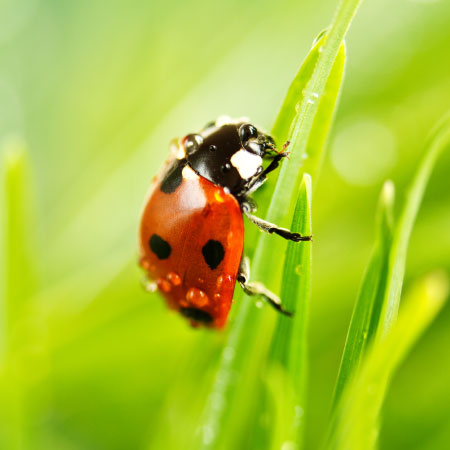What Is Bunchy Top Virus Of Tomato Plants


Despite being iconic and beloved from east coast to west, it's really quite amazing that the tomato plant has made it as far as it has. After all, this fruit is one of the more challenging in the garden and certainly has managed to develop plenty of unusual diseases. Bunchy top virus of tomato is just one of the serious problems that can make gardeners throw their hands up in frustration. While bunchy top virus of tomatoes may sound like a funny disease, it's no laughing matter. Read on to find out how to detect bunchy top and what you can do about it.
What is Tomato Bunchy Top?
Bunchy top virus of tomato, also known as potato spindle tuber viroid when infecting potatoes, is a serious problem in the garden. The tomato bunchy top viroid causes new leaves emerging from the top of the vine to crowd closely together, curl, and pucker. This mess isn't just unattractive, it also reduces the number of viable flowers to near zero. If a gardener is lucky enough to get fruits from a plant affected by bunchy top, they'll likely be tiny and very hard.
Treatment for Tomato Bunchy Top Virus
There is no known treatment for bunchy top on tomato leaves at present, but you should destroy plants showing signs immediately to prevent the disease from spreading to your other plants. It's believed to be spread in part by aphids, so a solid program to prevent aphids should be put into place following the detection of bunchy top. Another potential means of transmission is via plant tissues and fluids, so take great care when working with bunchy top-afflicted plants to sanitize your equipment thoroughly before moving to healthy ones. Bunchy top is believed to be seed-transmitted, so never save seeds from plants that have the disease or those close by who might have shared common insect pests. Bunchy top is a devastating disease to home gardeners-- after all, you've put your heart and soul into a plant's growth only to discover that it's never going to fruit successfully. In the future, you can spare yourself a lot of heartache by purchasing certified, virus-free seeds from reputable seed companies.
Gardening tips, videos, info and more delivered right to your inbox!
Sign up for the Gardening Know How newsletter today and receive a free copy of our e-book "How to Grow Delicious Tomatoes".

Kristi Waterworth was a regular contributor to Gardening Know How for many years, answering countless queries on plant pests and diseases.
-
 Looking For Plants To Give You The Soft And Fuzzies? Try These 5 Fuzzy Leaf Plant Options
Looking For Plants To Give You The Soft And Fuzzies? Try These 5 Fuzzy Leaf Plant OptionsLovers of texture, drama, silver foliage and tactile plants will adore these special sensory garden additions. These fuzzy leaf plant options will leave you all aglow
By Susan Albert
-
 Get Ready For A Summer Of Hummers! Grow These Full Sun Hummingbird Plants and Flowers
Get Ready For A Summer Of Hummers! Grow These Full Sun Hummingbird Plants and FlowersIf you’re lucky enough to enjoy a sunny backyard, make sure you are maxing out on your pollinator opportunities and grow these full sun hummingbird plants and flowers
By Tonya Barnett